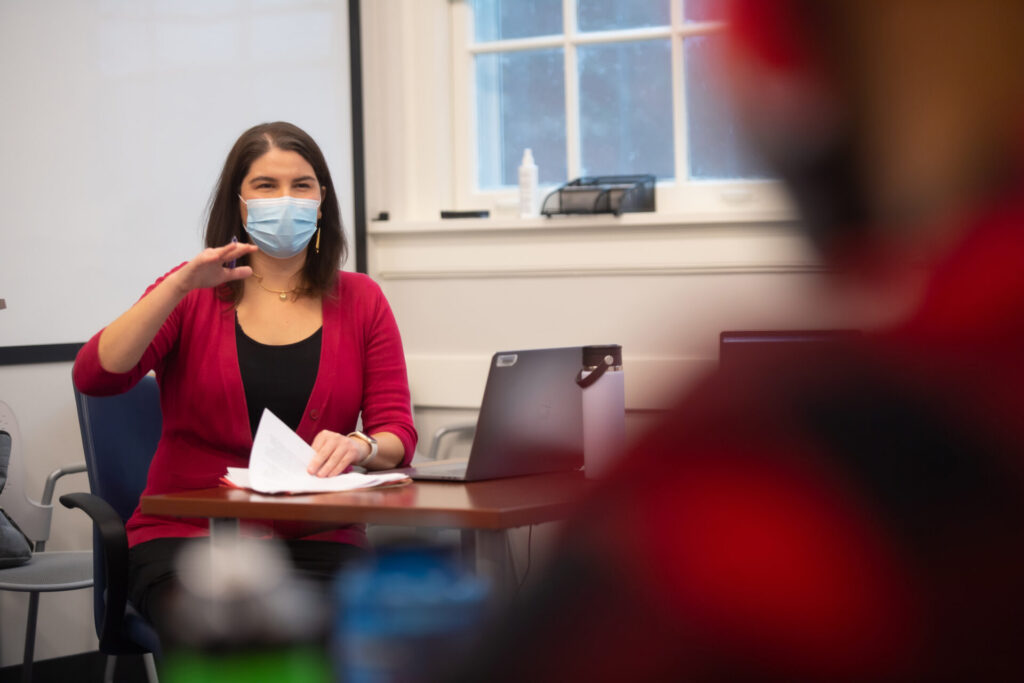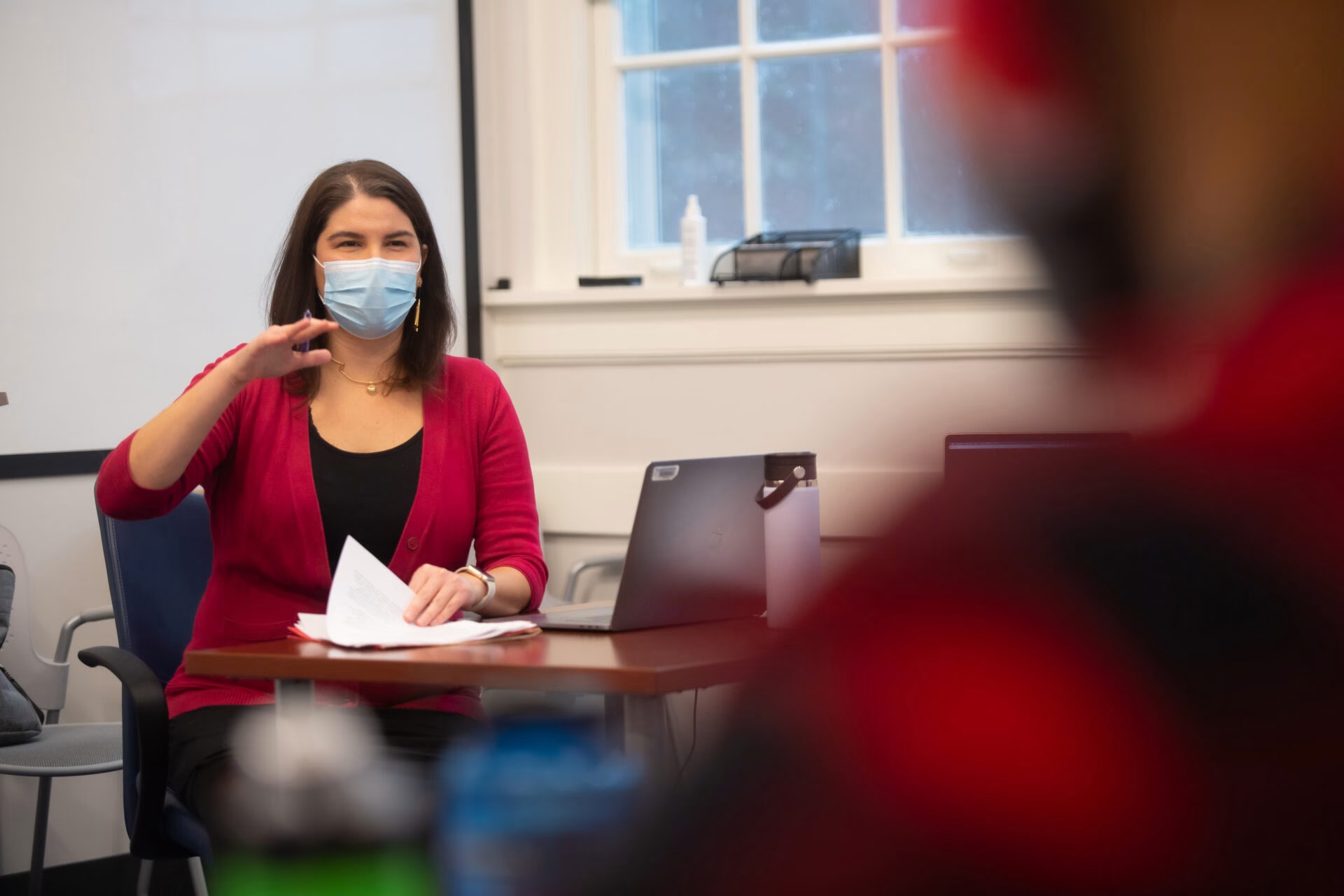By Shea Stewart
University of Mississippi

Stephanie Miller, associate professor of psychology, has been named the University of Mississippi’s inaugural Provost Faculty Research Scholar for Institutional Transformation.
The new position supports the expansion of university efforts to build collaborative research teams equipped to write and submit external grants designed to increase institutional capacity in the areas of diversity, equity and inclusion.
“I was very excited to hear the news,” said Miller, who also is director of the experimental graduate program in the Department of Psychology. “Much of my service as an academic has been devoted to diversity, equity and inclusion, and I was thrilled to be able to apply for and receive a position focused on this important element in academia.
“I hope that with this position, I can share the benefits that encouraging diverse viewpoints can have in advancing our institution in various areas, including research, teaching and community outreach. I hope to build a team focused on proposing evidence-based practices that can aid in attracting individuals with diverse viewpoints to the university and supporting these scholars in their career once they join the university.”
Funded by the Office of the Provost and the Division of Diversity and Community Engagement, Miller will work closely with the Office of Research and Sponsored Program and its new Interdisciplinary Research at UM grant development program to help move research teams through the building process.
Miller also will help align research goals with institutional priorities and resources.
The position, open to full-time, tenured faculty members, serves from the spring through the fall semesters.
“In addition to her longstanding commitment to advancing equity work, Dr. Miller stood out to the selection committee as a strong collaborator,” said Shawnboda Mead, vice chancellor for diversity and community engagement. “She has demonstrated success in pursuing external grant funding and positively contributing to research teams.
“As the university strives to strengthen diversity, equity and inclusion efforts, we are confident in Dr. Miller’s ability to increase our institutional capacity in this area.”
Depending on the success of the program, more faculty members could be added in the future as Faculty Research Scholars for Institutional Transformation.
“The Provost Faculty Research Scholar affords a faculty member the opportunity to help transform the institution within an important area of expertise and work to help us meet the challenges within a critical university area,” Provost Noel Wilkin said. “I look forward to working with Dr. Miller as she helps us to shape initiatives that will enhance how we support the work of faculty.”
Background in Research, Mentoring
Miller, who joined the Ole Miss faculty in 2012, focuses her research on social and cognitive development across the lifespan, with an emphasis on infancy and early childhood.
She directs the Cognition Underlying Behavior Lab, a developmental research lab interested in how children come to control their thought and behavior and what supports this development. The lab also studies how this control relates to other social and cognitive processes, such as social understanding and memory.
“I come from a family of educators and spent a lot of time in my mother’s classroom, which inspired my interest in learning and cognition,” Miller said. “Once I started taking developmental and cognitive psychology coursework, I was thrilled to discover I could pursue a career as a developmental scientist conducting and applying novel research focused on understanding children’s thought.”
Apart from her teaching and mentorship in her lab, Miller also serves as a mentor for programs such as the Ronald E. McNair Program and Society of Indian Psychologists Native-to-Native Mentoring Program.
“Being a mentor is so important to me because it is a significant part of how our knowledge gets passed down,” she said. “I feel I have a responsibility to help the next generation of scholars and our community develop. Working closely with students can be a way to enact change by encouraging a more inclusive and diverse community for generations to come.
“My hope is that by serving as a mentor, I can encourage students to see their potential, explore how best to achieve their goals in academia and consider the role they may play in creating a supportive, diverse and inclusive environment in their field.”
Encouraging Diverse Viewpoints
As UM continues its efforts to expand external grant funding in the areas of diversity, equity and inclusion, the university recognizes that certain priorities need to be addressed, such as the recruitment and hiring of underrepresented candidates into tenure-track faculty positions. Specifically, UM is focusing on women and people of color in science, technology, engineering, arts and mathematics fields, and on the tenure and promotion of these faculty members.
Other priorities to address include creating, revising and sharing university policies that support the recruitment, productivity and success of these faculty members and addressing and strengthening pathways to academic leadership for them.
“Research has shown many benefits related to encouraging diverse viewpoints in academia,” Miller said. “Encouraging diverse perspectives has important benefits related to innovation and problem-solving.
“Seeing diversity in the leadership and faculty can be important to the large portion of our student body who are diverse themselves and signal that their viewpoints are valued at the university and within higher education. Increasing the diversity of our faculty and leadership may also better equip us to serve and engage with our community, given Mississippi’s diverse population.”

